BCBC Autumn/Winter Newsletter - Conference Preview
Message from the BCBC Chairman, Clive Brown
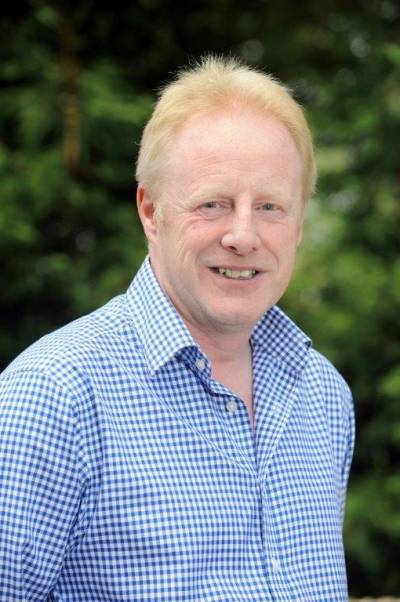
I was introduced to the British Cattle Breeders Club in 2003 and it has become an annual fixture in my diary ever since, so I was honoured to be elected as chairman. As an industry we can sometimes be a little hesitant to embrace both change and new technology so with this in mind I decided on a theme for the conference of ‘learn from the past to focus on the future’. Little did I know that this would be a year like no other and that we as a club would have to embrace both change and technology, and as such I will be the first BCBC chairman to preside over a virtual conference.
As a bovine sector, we have many challenges but also many opportunities. With a growing global population and affluence comes the desire to consume increasing amounts of protein as well as having higher quality aspirations. However, we also face increasing pressure from challenges to the industry on environmental and dietary health grounds – the challenge is how can we produce more from less, while minimising environmental impact and protecting consumers? This has to be addressed, whilst improving quality and value for an ever more demanding consumer, and we ignore this at our peril.
We have seen over many years how cattle breeding has greatly benefitted from the appliance of science, new technologies, and innovation. In this ‘new era’ I have no doubt that science and innovation will never have been more important for farmers, both now and for generations to come. New thinking, and strengthening the ability to innovate, will provide the advances and improvements that will increase efficiencies and produce populations of animals that can respond to the demands of a changing market place. By the nature of cattle breeding new science adopted today may take years to deliver its full reward. So, we have to ask ourselves what science, new technology and innovation can also add value to beef and dairy production in the short and medium term? Also, how do we engage young people, encourage their passion for agriculture and secure their future?
The 2021 BCBC programme has been developed around these points and the fact that we will have a digital conference has given us the opportunity to access more speakers from around the world which means we can catch up with one or two old friends and hear from some new ones. I really do hope we can learn from the past to focus on the future.
Finally, can I thank all of our sponsors for their support, which has enabled us to continue to deliver a conference, and also those who have supported me as we faced an ever-changing world. The committee, particularly my vice chair Karen Wonnacott and Andy Dodd for the numerous Zoom calls but most of all the ever-efficient Heidi Bradbury, our company secretary, who would admit to being on a steep learning curve but has managed to pull everything together as always.
I very much hope that you enjoy the programme and the people, and log out of the 2021 BCBC conference informed, full of ideas, and with the energy and vision to embrace practical innovation and add value to every level of our great beef and dairy industries.
The programme for the 2021 conference has been announced, here is a snapshot preview of some of our keynote speakers.
Dr. Frank Mitloehner, Department of Animal Science at the University of California - 'Rethinking Methane – Animal Ag’s path to Climate Neutrality'
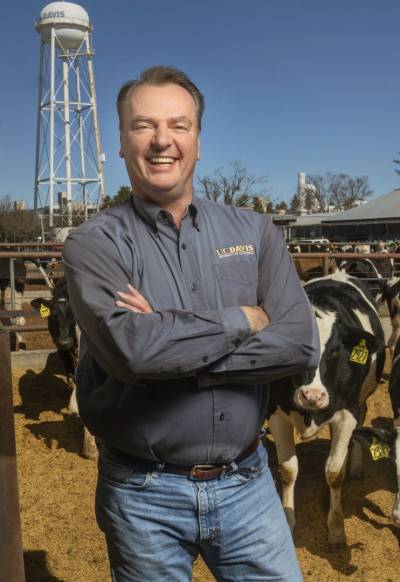
Dr. Frank Mitloehner is Professor and air quality specialist in the Department of Animal Science at the University of California. He shares his knowledge and research, worldwide, with students, scientists, farmers, ranchers, policy makers and the public at large. Franks passion and commitment to understanding and mitigating air emissions from livestock operations is making a difference to future generations. Being Director of the CLEAR Centre with its core values of research and communications, Frank is bringing clarity and understanding of environmental and human health impacts of livestock, helping create informed decisions on the food we eat whilst reducing environmental impacts.
Frank was recruited by UC Davis in 2002, to fill its first-ever position focusing on the relationship between livestock and air quality. Franks talk will be based around this research of ‘Rethinking Methane – Animal Agriculture’s path to Climate Neutrality’; as animal agriculture is often shouldered with a large part of the blame when it comes to climate change, but that is because we haven’t been looking at all greenhouse gases correctly. By rethinking methane, we can show how animal agriculture is on the path to climate neutrality, which will allow the global community to find meaningful solutions to climate change.
Dr. Alison Van Eenennaam Department of Animal Sciences, University of California - 'Genome editing approaches to augment cattle breeding programmes'
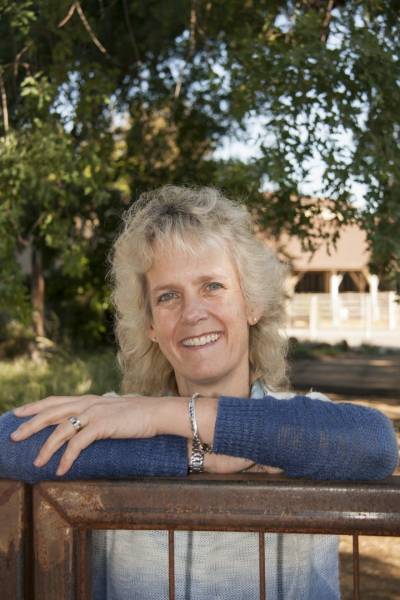
Dr. Alison Van Eenennaam is a Cooperative Extension Specialist in the field of Animal Genomics and Biotechnology in the Department of Animal Science, University of California. Her publicly-funded research and outreach program focus on the use of animal genomics and biotechnology in livestock production system and her current research projects include the development of genome editing approaches for cattle.
Dr. Van Eenennaam will be presenting on her genome editing research in cattle. To date genomics has focused on disease resistance, production, product quality, and welfare traits. However, modelling has revealed how Genome Editing could be used to introduce beneficial alleles into cattle breeds and maintain, or even accelerate, the rate of genetic gain accomplished by conventional breeding programs. However, as with earlier genetic engineering approaches, it will be dependent on regulatory frameworks and governance of genome editing as to whether it can be employed in the improvement of cattle genetics.
Dr. Van Eenennaam serves as the bovine genome coordinator for the USDA National Animal Genome Research Program, and is an elected Fellow of the American Association for the Advancement of Science (AAAS) and she frequently provides a credentialed voice on controversial scientific topics on US media and is the recipient of many awards for her work in science and genetics.
Steve Binnie Owner, Mirannie Station, Mirannie, NSW, Australia - 'Adapt or Die'
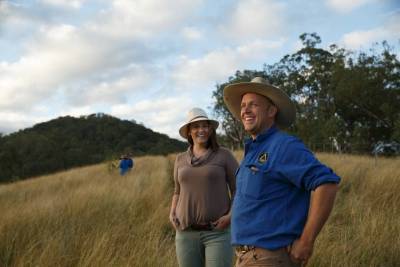
The Binnie family have been operating in Australian agriculture since 1835. Based on 7,000 acres of prime cattle breeding country renowned for lush pastures, crystal clear spring fed creeks and natural rye grass or clover pastures in the heart of the Hunter Valley. In 1917 the nucleus Hereford herd, still seen today, was bought. The property has been passed down the generations with improvements to water, infrastructure, pasture and genetics. Steve and Liz
Binnie took on this family legacy in 2004, moving solely into Wagyu cattle breeding and direct to restaurant beef sales after live cattle exports were suspended to Indonesia with a loss of A$320 million to the cattle industry. They saw an opportunity into Wagyu, from investing and selling genetics to producing beef, both of which are sold around the world. They pride themselves on consistency of the beef and this is derived from the starting genetic base, with DNA linked back to Japan, and full traceability of the animal from birth to box!
Steve will be presenting on the Binnie’s ability to ‘Adapt or Die’, ensuring business agility has moved his business forward, with emphasis on how it all starts with genetics to ensure his Delta Wagyu Genetics are hitting growth, functionally and marbling whilst producing mouthwatering steaks, to the world’s best restaurants and direct to homes.
Professor Albert De Vries Department of Animal Sciences, University of Florida - 'Profitability and efficiency of the five-lactation average dairy cow'
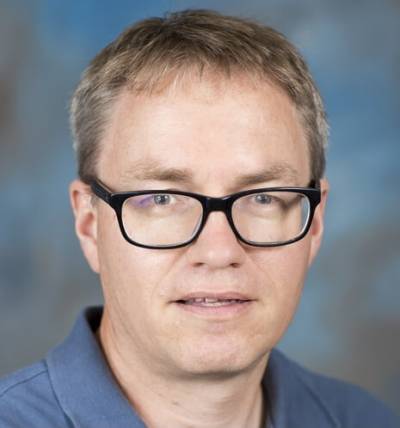
Prof. Albert De Vries is Professor at the Department of Animal Sciences, University of Florida, where he teaches undergraduate dairy courses and advises undergraduate & graduate dairy students. His research covers; dairy culling & replacement strategies, statistical process control, economics of reproduction & genetics and precision dairy farming.
Prof De Vries works within the allied dairy industry and dairy farmers on how to apply the results from his dairy management research and farm financial management with special interest in the economic valuation of production changes on dairy farms.
Prof De Vries presentation will highlight the positives for extending the average number of dairy cow lactations to five, which can be accomplished through breeding, cow care and improved decision making. Looking at opportunities and lessons from the past, Prof De Vries will focus on the economics of extending the lactations.
Peter Hynes, Rathard Holsteins, Co. Cork, Ireland - 'Embracing Genetic Gain Amidst Dairy Expansion'
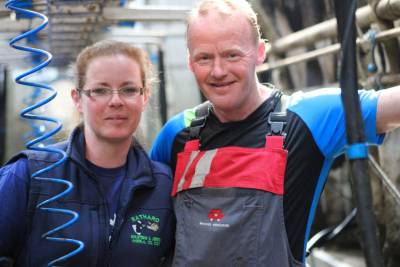
Peter and his wife Paula farm the 180 pedigree Rathard Holsteins herd in Co. Cork, Ireland. EU quota was removed in 2015 and this saw herd expansion from 50 head of cattle; with their main focus on maximising genetic gain. Genetic gain is being by using elite genotyped sires combined with information gathered from genotyping all females within the herd and matching sire traits to the requirements of the herd.
Teamwork is key to how the farm is run and this has led them to working closely with the National Cattle Breeding Centre, and towards fulfilling the requirements of the national dairy herd; which maximises financial returns from surplus stock sales.
Peter and Paula won the 2017 ‘Zurich Independent Farmer of The Year’ and are ambassadors for the Irish Cattle Breeding Federation. Peter is passionate about family farming and this is seen in his contributions to the Farming Independent and public speaking roles. Both are ambassadors for the mental health charity, TackleYourFeelings along with helping raise awareness and taking part in projects for other farming charities.
John Maddux Maddux Cattle Company, Imperial, Nebraska - 'British Breeds used on our Ranch'
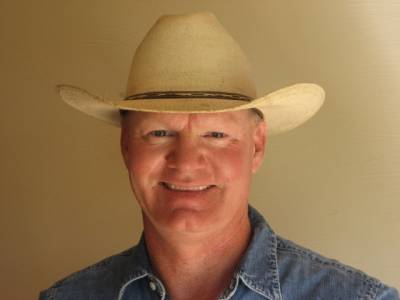
John owns and manages the family ranch which consists of 45,000 acres, 2500 suckler cows and 5000 yearlings, which are grazed on a year-round low-input system. Johns aim is for a modest level of production, with emphasis on fitness and convenience over high production traits.
John will be presenting on the use of British cattle breeds on their ranch, which is made up of Red Angus, Tarentaise, Devon, South Devon and Red Poll. John uses this British based composite cow to utilise the low input grazing system.
They graze 365 days a year, on a combination of 1/3 Hard land and 2/3 Sandhill’s grass with roughly 1000 acres of sub-irrigated meadows. No stored feed is fed and minimal supplementation used, cornstalks, off rented land, are grazed throughout the winter.
Along with the day to day running of the ranch, John is a member of the Nebraska Grazing Lands Association; the Nebraska Investment Council, which manages the state’s pension assets; and is a member of the State Bank Board of Directors. Prior to running the ranch, John was employed by Goldman Sachs of New York, and worked with Elanco selling herbicides.
Sarah Pick, MSc Nuffield Scholar 2019, AHDB B&L Knowledge Exchange Programme Manager, Warwickshire - 'Heifer replacement strategies: Cost reduction in the UK suckler herd'
Sarah grew up on the family beef farm in Yorkshire breeding pedigree Simmental cattle; this interest in farming saw her obtain a BSc in Animal Management & Science at Askham Bryan College and an MSc in Sustainable Agriculture at Harper Adams University. Sarah joined AHDB in 2015 as a beef specialist and recently moved to the Beef & Lamb Knowledge Exchange Team. 2019 saw Sarah become a Nuffield Farming Scholar, she travelled within the UK and to Australia, Canada and USA, to investigate heifer replacement strategies in the suckler herd, visiting farms with herds from 20 to 42,000 cattle and talking to researchers and farmers.
Sarah will be presenting on her Nuffield Scholarship findings; she learnt that calving heifers for the first time at two years of age is an effective method of reducing cost of production and increasing cow lifetime reproductive performance. However, it is estimated that only 35% of English suckler producers carry out the practice. By understanding the management practices required to ensure calving heifers at two years of age is successful and that a more functional suckler herd is created, Sarah hopes to inspire more farmers to start calving heifers at 2 years of age.
Rebecca Burnham Boogal Cattle, Queensland, Australia - 'Optimising Beef Selection in Northern Australia'
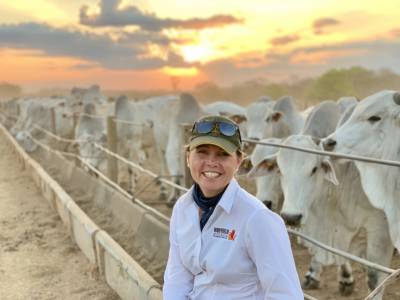
Rebecca Burnham is an Australian Beef Producer and International Nuffield Farming Scholar. The Boogalgopal property is situated in the North Burnett area of Queensland. They run a herd of 800 Braham and Chabray cattle over granite breeding grounds with 3500 acres of scrub used for fattening. The versatility of the country allows the running of a breeding-fattening operation with the turn-off of prime steers for the EU market being the main focus of our family operation. Boogal Cattle Co is an accredited Grasslands Beef Producer. The aim of the business is to breed cattle to thrive in Northern Australia, that are profitable whilst addressing social and environmental signals.
Rebecca is an International Nuffield Farming Scholar and she travelled to 14 countries during 2019 as part of her research to discover how to further optimise her herds genetic progress in traits of importance not recognisable by eye such as; fertility, feed efficiency, yield and eating quality. Rebecca presents her findings to you during her talk on ‘Optimising Beef Selection in Northern Australia’
Dr Cath Rees, School of Biosciences, University of Nottingham - 'Use of Actiphage to detect bovine TB and Johne’s disease; Achievements and unanswered questions'
Dr. Cath Rees is currently Associate Professor in Microbiology in School of Biosciences, Nottingham University. Originally, she studied Biochemistry at Oxford, followed by a PhD in Bacterial Genetics at Leicester University and has developed a research focus of applying molecular techniques to the study of applied microbiology, with specific interest in the study of Listeria and Mycobacteria.
Dr. Rees will present her research on Actiphage® which is a new blood test that can be used to detect both bovine TB and Johne’s disease. She will review what new information has been gained about these diseases and how using Actiphage can be used for the future management of the diseases. Unlike conventional immunological tests, a positive, Actiphage, result indicates that the animal is currently infected and the type of bacteria present can be confirmed using PCR. Tests can be performed on animals at any age and at any stage of infection, and there is no limit on the interval between tests. However, to get a positive result bacteria have to reach a certain threshold level in the blood.
Research carried out by Dr. Rees, has resulted in the development of rapid, phage-based tests for the detection of mycobacterial pathogens including M. tuberculosis in humans and M. paratuberculosis and M.bovis in animals. This has led to the establishment of PBD Biotech Ltd with Dr. Rees as CSO and winning The Royal Dairy Innovation Award for research and development in dairy farming.
Dr Mark Young Head of Innovation, CIEL, York - 'Resilient & Robust Cattle – Defining a breeding objective'
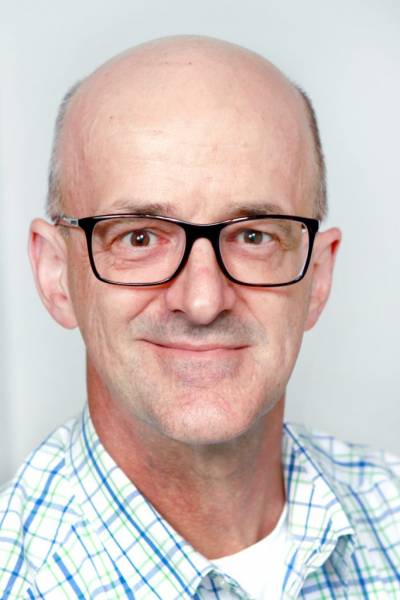
Dr Young has been with CIEL for 4 years as Head of Innovation. Previously he spent 15 years as geneticist with the NZ sheep genetic improvement system, SIL. He has been a scientist with SRUC in Edinburgh using CT scanning to look at the genetics of carcass growth in sheep.
Mark has spent much of the last 25 years working closely with farmers and sees demystifying technology paired with understanding farmer needs, as the key to delivering innovations that are relevant, deliver value and will be widely picked up.
Marks talk is based around his interest in CT scanning, carcass evaluation and genetics to bring you ‘Resilient & Robust Cattle – Defining a breeding objective’. Farmers in challenging environments know about the advantages of animals that are able to cope with these challenges; such as disease, low levels of feed or extreme weather. This multi-faceted trait (or traits) is receiving increased interest from animal scientists seeking to define key dimensions of these traits, and geneticists who are wanting to predict genetic merit. Mark will be presenting the idea of ‘Anti-Fragility’ and he will examine how this helps to define the traits.
Mark is actively seeking your feedback during his presentation, so lots of questions and thoughts will be welcomed.